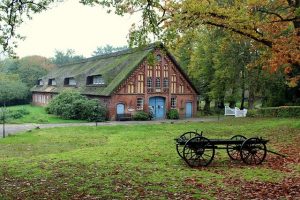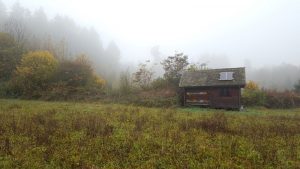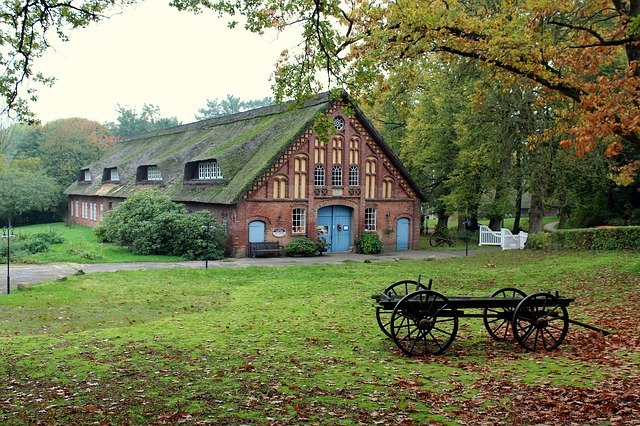Is Homesteading a Good Lifestyle?
 I’ve been a happy homesteader a long time. It’s hard work, but extremely rewarding. I regularly have people asking me – “Is Homesteading a Good Lifestyle?”. Let me give my answer in this article below…
I’ve been a happy homesteader a long time. It’s hard work, but extremely rewarding. I regularly have people asking me – “Is Homesteading a Good Lifestyle?”. Let me give my answer in this article below…
Homesteading is an incredibly rewarding lifestyle, offering a great opportunity to live a more self-sufficient, sustainable lifestyle. It allows people to grow their own food and live off the land in a way that is healthier, more fulfilling, and more environmentally-friendly than many other lifestyles. In addition, homesteading can provide a sense of community, connection with the natural world, and a unique way of life that is unlike any other. For those looking to make a change, homesteading is certainly worth considering.
Homesteading is a lifestyle choice that involves self-sufficiency, sustainability, and reliance on natural resources. It is becoming increasingly popular among people who want to live a simpler, more self-reliant lifestyle. This article will look at the pros and cons of homesteading and explore whether it is a good lifestyle choice for everyone. We will explore the different types of homesteading, the cost of setting up a homestead, the benefits of homesteading, and the challenges of homesteading. We will also look at how homesteading can benefit the environment and the community. Finally, we will discuss the importance of having a plan before beginning a homestead and the importance of researching to ensure that the homestead is sustainable.
Definition of Homesteading
 Homesteading is a lifestyle that focuses on self-sufficiency and living off the land. It is a lifestyle that encourages individuals to take control of their lives and become more self-reliant. Homesteaders strive to be as self-sufficient as possible, growing their own food, raising their own animals, and relying on themselves to provide basic necessities. They also often seek to live off the grid, using renewable energy sources and avoiding reliance on modern infrastructure. Homesteaders typically have an appreciation for the outdoors, nature, and the environment. Homesteading is an excellent lifestyle choice for those looking to simplify their lives, reduce their carbon footprint, and be more self-reliant.
Homesteading is a lifestyle that focuses on self-sufficiency and living off the land. It is a lifestyle that encourages individuals to take control of their lives and become more self-reliant. Homesteaders strive to be as self-sufficient as possible, growing their own food, raising their own animals, and relying on themselves to provide basic necessities. They also often seek to live off the grid, using renewable energy sources and avoiding reliance on modern infrastructure. Homesteaders typically have an appreciation for the outdoors, nature, and the environment. Homesteading is an excellent lifestyle choice for those looking to simplify their lives, reduce their carbon footprint, and be more self-reliant.
Some Benefits of Homesteading
Homesteading offers numerous benefits that can make it an attractive lifestyle choice. Many people are drawn to the self-sufficiency and independence that homesteading provides. In addition to providing you with an opportunity to produce your own food, homesteading can also help you to become more self-reliant and resourceful. You’ll learn how to be creative and find solutions to problems on your own. Another benefit of homesteading is that it can be a great way to save money. By growing your own food, you can reduce your grocery bills and use the money saved for other things. Additionally, many people find homesteading to be a great way to get in touch with nature and to reconnect with the natural world around them. You’ll be able to observe the changing of the seasons and the cycles of nature, and you’ll be able to appreciate the beauty of the land. Finally, homesteading can be an incredibly rewarding experience, as you can gain a great sense of satisfaction from seeing the fruits of your labor.
Advantages of Homesteading
Homesteading offers many advantages to those who choose to adopt this lifestyle. The most obvious benefit is that it allows individuals to become self-sufficient and be in control of their own destiny. Homesteaders can produce their own food, energy, and even build their own homes, giving them a sense of freedom and autonomy. Additionally, homesteaders are able to build strong communities that are focused on sustainable living. This is beneficial for both the environment and the local economy, as homesteaders can produce organic and locally produced food, reducing the need for industrialized agricultural products. The lifestyle also encourages people to slow down and appreciate the simple things in life, as they are not as caught up in the hustle and bustle of modern life. Finally, homesteading can be an incredibly rewarding experience, as it encourages people to learn new skills, connect with nature, and build relationships with their neighbors.
Financial Benefits of Homesteading
A very important financial benefit of homesteading is that it allows you to be self-sustaining. This means that you can produce your own food and other resources, which can save you money on groceries and other items. Additionally, you can save on energy costs by utilizing renewable energy sources such as solar, wind, and hydropower. Many homesteaders also make money off of the products they produce and sell, such as eggs, dairy, and produce. This income can help cover the costs of maintaining your homestead, as well as provide additional income. You can also benefit from tax breaks in some areas, as homesteading is often recognized as a sustainable and environmentally friendly lifestyle.
Self-Sufficiency Benefits of Homesteading
Self-sufficiency is an important aspect of homesteading. By utilizing an off-grid lifestyle, homesteaders can be self-reliant in producing their own food, energy, and other goods and services. This means that homesteaders can become independent from the traditional economy, allowing them to be more resilient to economic downturns and other challenges. Homesteaders can grow their own vegetables, raise livestock, and develop skills such as canning and preserving food for later use. They can also explore alternative sources of energy, such as solar and wind power. The goal is to reduce dependence on outside resources as much as possible and create a sustainable, self-sufficient lifestyle. With the right knowledge and resources, homesteaders can live a life of self-sufficiency and independence.
Here are a Few Disadvantages of Homesteading
The disadvantages of homesteading include a lack of convenience, a lack of amenities, and a lack of safety. Homesteaders often have to rely on natural resources for heating, cooking, and energy, which can be expensive and difficult. Additionally, living in a rural area can mean limited access to amenities such as shopping, entertainment, and healthcare. Furthermore, being so far from civilization can often make homesteaders vulnerable to theft and other dangers, as they are isolated and lack the security of neighborhoods and communities. Finally, the homesteading lifestyle can be physically and mentally demanding, as homesteaders must often rely on their own strength and ingenuity for survival.
Difficult to Establish
A. Difficult to Establish is a term that refers to the difficulty of establishing a homesteading lifestyle. This is due to the fact that homesteading requires a significant amount of time, effort, and resources to set up; it is not something that can be done overnight. Additionally, the process of homesteading can be challenging, as it requires knowledge of various skills such as gardening, animal husbandry, and construction. Furthermore, homesteading often requires a significant investment of resources in terms of land, tools, and supplies. Finally, establishing a homestead often involves a significant amount of risk and uncertainty, as it can be difficult to predict the future of the homestead and whether it will be successful in the long run. All these factors make homesteading a difficult lifestyle to establish.
Limited Social Interaction
When considering homesteading as a lifestyle, one of the most significant drawbacks is the limited social interaction. Many homesteaders live off-grid or in rural areas, which can mean long distances between neighbors and friends. Furthermore, the time-consuming nature of homesteading can take away from available time for socializing. This can be especially difficult if a homesteader is living alone, as they may not have a partner or family to interact with. Additionally, homesteaders may find it difficult to join local clubs or organizations, as they may be unable to attend meetings due to the amount of work that needs to be done on the homestead. There can also be a lack of resources in rural areas and the cost of travel can be prohibitive.
Some Pros and Cons of Homesteading
Homesteading is an increasingly popular lifestyle choice for many people around the globe. It involves living an independent, self-sufficient lifestyle in a rural setting, often living off the land. The pros and cons of homesteading need to be weighed carefully before making such a major lifestyle change.
The biggest advantage of homesteading is the ability to live a more sustainable lifestyle. It allows people to grow their own food, have access to fresh water, and produce their own power. In addition, homesteaders can often find ways to repurpose discarded items, making their lives more affordable. Furthermore, the rural lifestyle of homesteading can provide an escape from the hustle and bustle of the city.
However, homesteading comes with its share of challenges. It requires a lot of hard work on a daily basis, and it often requires an upfront financial investment in order to get started. Additionally, there is a great deal of risk involved, as homesteaders must be prepared for the possibility of crop failure, inclement weather, and other unexpected challenges. This can make it difficult for homesteaders to make a steady income, as there is no guarantee of success.
In the end, whether or not homesteading is the right lifestyle choice for you will depend on your individual goals and preferences. It is important to weigh all of the pros and cons carefully before making such a major life change.
Homesteading Lifestyle Conclusion
In conclusion, homesteading is a great lifestyle for those who are looking for a more sustainable living and are willing to put in the effort to make it work. It offers the opportunity to be self-sufficient and provides unique experiences that can’t be found in any other way. It also brings with it a sense of connection to the land and the environment, something that many people find quite rewarding. However, it is important to keep in mind that homesteading is not always easy and requires a great deal of hard work and dedication. It also requires a certain level of financial commitment, as well as the right resources and skills. So, if you are considering this lifestyle, it is important to do your research and make sure you are prepared for the adventure before you begin.





